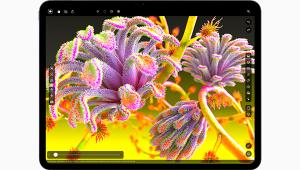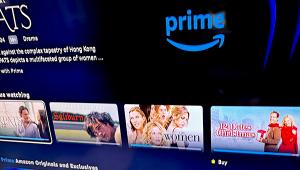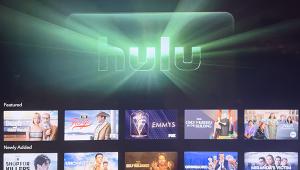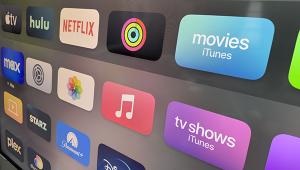I am probably odd man out but I like things like History, Discover, National Georaphic, Velocity or Spike are those anywhere to be found on these types of services. I am sure getting good at recording them but I would rather find them on the internet.
Bob
Movies: Stream, Rent, or Buy
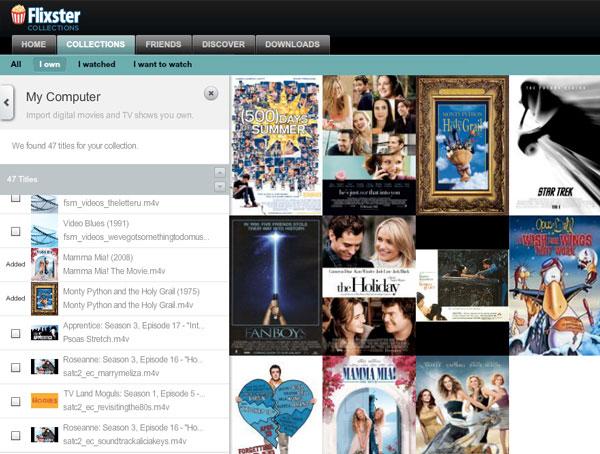
It's good to start your digital movie-watching experience using monthly subscription services or occasionally renting titles. Netflix has a large selection of movies, and Hulu Plus has most TV shows (except those from CBS) available the day after they are broadcast. You'll spend $7.99 per month for each subscription. If that sounds like a lot of money, consider that renting a single movie from an online service will almost always cost more than $3.99; TV shows start at $1.99 for standard definition. After two or three rentals, the monthly subscription services pay for themselves.
Once you find a movie title you want to view over and over again, especially if you have small kids, you may want to buy the digital movie. There are two choices here: Download it to your computer or device or access it from the cloud service.
At first, you may want to keep all your downloaded movies in a single library (e.g., an iTunes library or Windows Media Center), but high-quality movie files can use as much as 3 to 6 gigabytes of memory. Your movie library can grow quickly, and you'll need to move the files to an external hard drive, since loading up your computer's main hard drive will ultimately slow down its ability to run all programs.
At some point, other members of your family may want to add their own movies to a central movie folder. This is when you may want to consider a network attached storage (NAS) drive that everyone in the house can access. The insidious part of this approach is that the file titles and organization that worked when there were only a few movies might no longer makes sense when multiple libraries are merged. Some movie files may be moved to folders and forgotten, while others may be unnecessarily duplicated.
Rather than hoarding digital files that load up your hard drives, consider a cloud locker where the movies you buy are held for you in a virtual online library. Movies in the cloud are easy to browse, can be searched and retrieved by genre or category, and are easy to find in one place. Some cloud lockers that store purchased videos include Amazon, iTunes, and Vudu.
As you might expect, Amazon videos are stored in your Amazon video library. They can be streamed to devices with Amazon Instant Video access, and you can download them to two computers and two "unbox" portable devices. Still, if you have access to the Internet and a media streamer or web browser that can access Amazon Instant Video, you might not need to download the video at all.
The Apple TV has no memory to download movies. Until recently, you had to download movies you bought in iTunes, save them on your computer, and stream them from there to the Apple TV. This has changed with the newest update to Apple TV as well as the 1080p version of the device. Many purchased movies can now be streamed directly to an Apple TV, though Apple is still working on licensing deals with many studios that are restricting access to streaming. For those movies, you still have to download to your computer and stream to the Apple TV over your home network.
Vudu is known for its high-quality movie rentals, but you can also buy movies that will be stored in your Vudu cloud library. Vudu titles can be accessed by movie categories "Comedy," "Drama," "TV Shows" and so forth.
Cloud movie lockers will grow in popularity as UltraViolet takes hold. You will be able to add the DVD and Blu-ray titles you already own to an UltraViolet cloud locker for less than buying a digital copy. While it costs $9.99 or more to buy a digital copy, it will cost only $2 for adding the title to your Ultraviolet library. The Walmart Disc to Digital service (which I wrote about here) will make your DVD and Blu-ray titles available from your Vudu locker as well.
Still, as you purchase movies, you may find them stored in a number of cloud services as well as on your home network. And while you may be able to watch all of them on your iPad or other device that can access all the services, I look forward to the day when we can access all our content from a single app or device, whether it is streamed from online or stored on our home network.
If all goes well, there should soon be apps or features on TVs and media players that can bring together downloaded movie libraries with online cloud libraries. Already, Flixster has released a computer application that can access your UltraViolet library, your Hulu and Netflix queues, and movies on your computer; in the screen shot above, an iTunes library has been imported into Flixster. It's still in the early stages of development, and there are some details to smooth out, but it appears that Flixster may be an integral part of the future of watching movies and TV shows on our home theaters and mobile devices.
- Log in or register to post comments


I have Netflix for streaming cable tv content. I use Hulu (the free version via HTPC) to stream recent television shows. But I basically NEVER stream a feature-length movie, regardless of source. I just can't tolerate the diminished quality, when I know that Blu-Ray offers something much better. So I either rent or buy Blu-Rays for my movies.
Vudu looks pretty good quality-wise (I streamed "Inception" on a free trial), but it is cost prohibitive. Six bucks to watch a movie once is just too rich for my blood, when I can watch nine or ten movies per month on Blu-Ray from Netflix for $10. And If I know I love the movie, why not just pay $15 to own it on Blu-Ray? "A la carte" rental models are not appealing to me until they get down to the $1-2 range.

Personally, I find the current state of affairs in regards to on line video services to be downright PATHETIC!
First, lets look at the streaming services, like Netflix and Hulu Plus. Both offer you quite a lot of content, but, thanks to Hollywood paranoia, forget about getting the latest movies and TV shows on Netflix. If you are OK with obscure and "B" rate titles, Netflix has them in spades...if you want to watch a movie that came out next year, look somewhere else! Hulu is more current with their content, but you are limited to SD video in most cases, and you may not have access to all episodes from a series. They are getting somewhat better, but since Hulu was designed to head off competition and not disrupt traditional TV, it is not all that it could be. I suggest that you try these services if interested...the worst that will happen is you will be $10-$20 lighter in the wallet. If you don't find much that interests you, you can always cancel the subscription.
Next, lets have a look at the various other services that let you rent or buy movies. You have a LOT to choose from...Amazon, Xbox's Zune Marketplace, Sony's Playstation Video Store, Wal-Mart's Vudu, Blockbuster, Cinemanow, and probably a dozen others that I am forgetting.
First, (and this is my main gripe here) why do I have to search 4 or 5 DIFFERENT services to find a movie? Some movies are "Exclusive" to one service or another for a certain period of time...so, if you really want to watch a particular new release, you have to DIG for it, and search multiple times on multiple services. Worse, thanks to Hollywood paranoia (again!), chances are you wont even FIND the movie you are after until MONTHS after it is available on disc!
Second, you finally find the movie you want to watch...and guess what? It's available for purchase at $20, but no rental option (again for MONTHS after general release!)
Third, you say, ok, this movie is one I want to watch a few times...so you plunk down your $20 or whatever and download it. BE SURE TO READ YOUR TERMS OF SERVICE BEFORE YOU BUY! Some services, like Xbox's, let you re-download your purchases at any time. Others, like Sony, let you download ONCE. You erase it, you just flushed your money down the toilet! All of these services should allow unlimited re-downloading of your movies, PERIOD. If they don't, DONT BUY!
Finally, you have the DRM issue. So you download your purchase (which you might not be able to redownload!) onto your device...some DRM prevents you from even making a backup copy! Even if back ups are allowed...they go online every time you play them back to ensure that you are in compliance with the DRM. Let's say one of these companies decides to get out of the movie business. Guess what? ALL of your purchases could be so much digital garbage! Think this is only applicable to small companies? Guess again! Both Yahoo and Google have shuttered video stores in the past, leaving users without the content they paid for! Caveat Emptor!
For rentals, I feel that the online services are just fine, however. A little overpriced, especially in comparison to RedBox, but they are convenient, and the picture quality is just fine. We are even starting to see higher quality audio with Dolby Digital Plus on Vudu...a GREAT step forward, IMHO! Now, if we could just convince Hollywood to release more titles! (especially current releases!)
Personally, I suggest that if you like to OWN your movies, buy them on DVD or on Blu-Ray. You can always rip the movie on your PC and save it as whatever format you need. As an added benefit, you can strip the "mandatory" trailers from the beginning, as well as the FBI warnings and other crap that festoons the legitimate copy THAT YOU PAID FOR, and make it so that the movie itself plays when you hit "play"! What a concept!
I would recommend very strongly against "buying" your movies online. It should also be noted that when you purchase a movie online, you are not "buying" the movie, but a licence to play that movie under the conditions set by the studios. When you BUY a disc, it has been established in court that you OWN that movie! My advice? Stick to discs (for now)!

As for watching movies at home I prefer to buy the disc in order to get the best resolution and sound reproduction. As for Bob's question I have XBMC loaded on our HTPC and was until recently able to get Nat. Geo. through a video add-on there. Now the add-on appears to be "broken", maybe it will be back in order soon.





